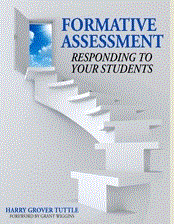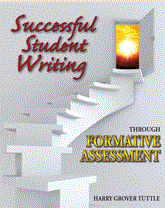I give a pre-test and a post test in my Spanish course. From the pre-test I can measure the students incoming knowledge. From the post-test I measure their departing knowledge. More importantly, I analyze the results of each unit test by the various categories on the test. If many students do poorly on a certain section, I reteach it. The next semester I start out that particular point with the reteaching material. I also do many formative assessments so that I can give students new strategies to do better. This semester my students did an average of 12 points better than last semester’s students. I have analyzed the final to see the area in which they lost the most points – writing mini-compositions and have begun to figure out ways to help them. We will do more writing in class and on our class wiki. I will focus on the verb forms to tell a story such as what I did last weekend. I will have them write out their weekend in a chronological order and make sure that they use a different verb in each sentence. We will do mini-writings over several class periods. For the final they do not need complicated sentences; they just need simple sentences that communicate different ideas. My goal is to increase this coming semester’s average by 10 points over last semester.
By how much will you increase your class average this coming year?
My book, Formative Assessment: Responding to Your Students, is available through Eye on Education.
Also, my book, Successful Student Writing Through Formative Assessment, is available through Eye on Education.

